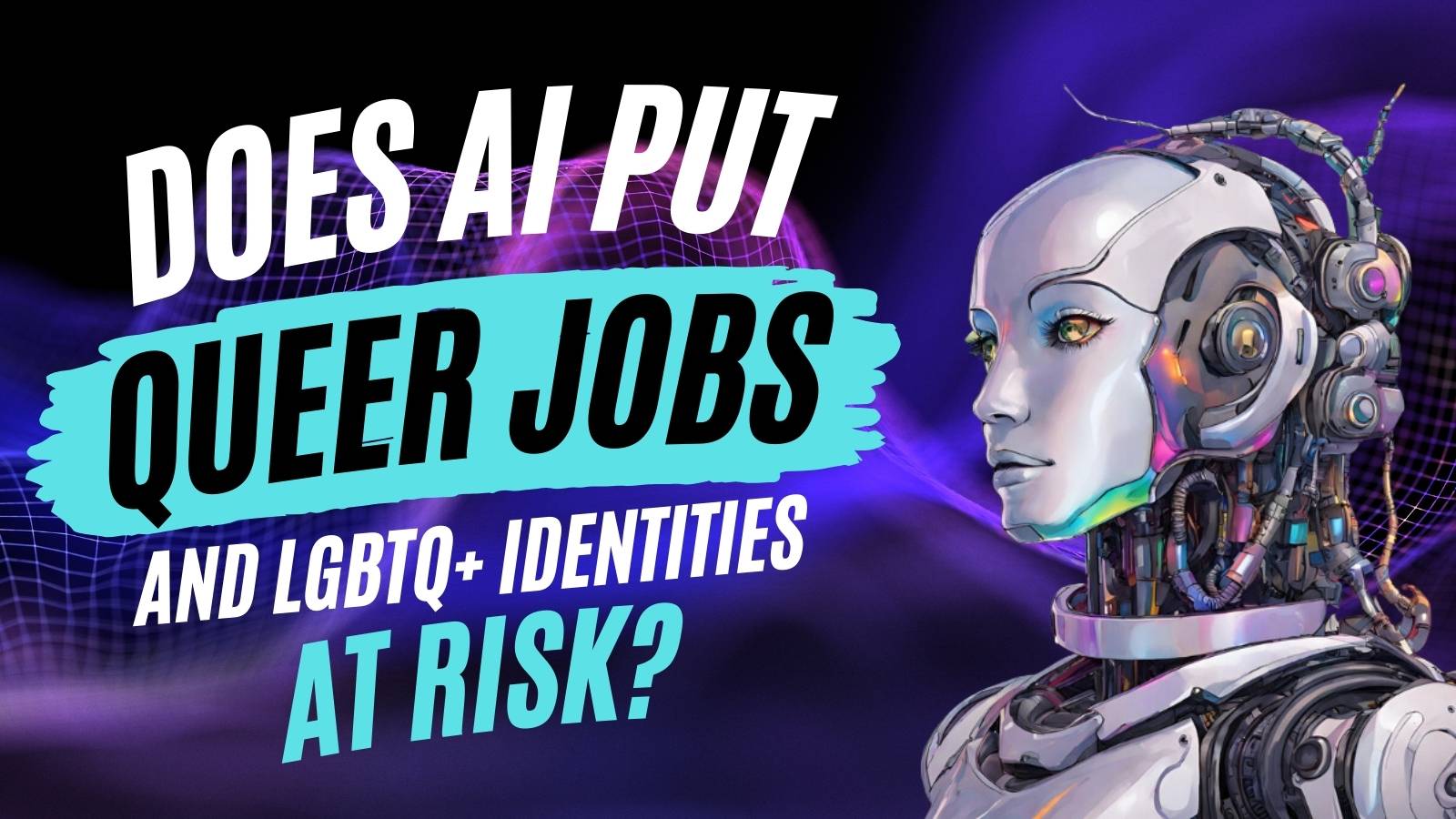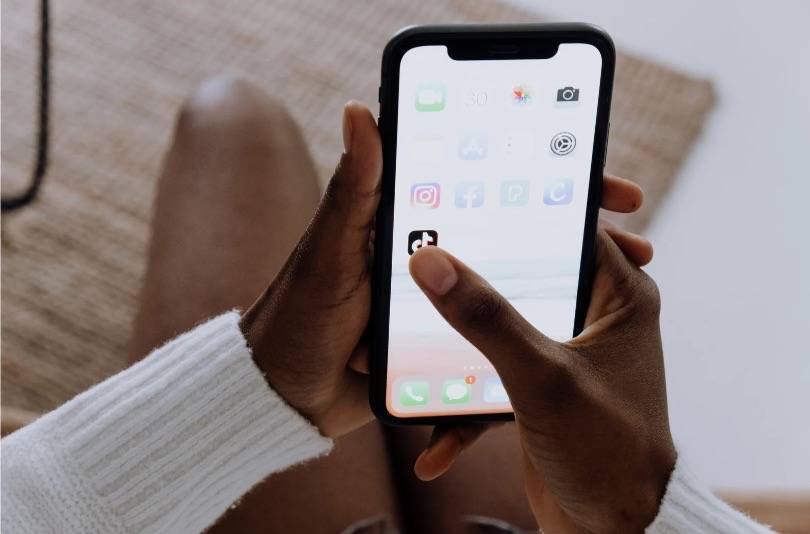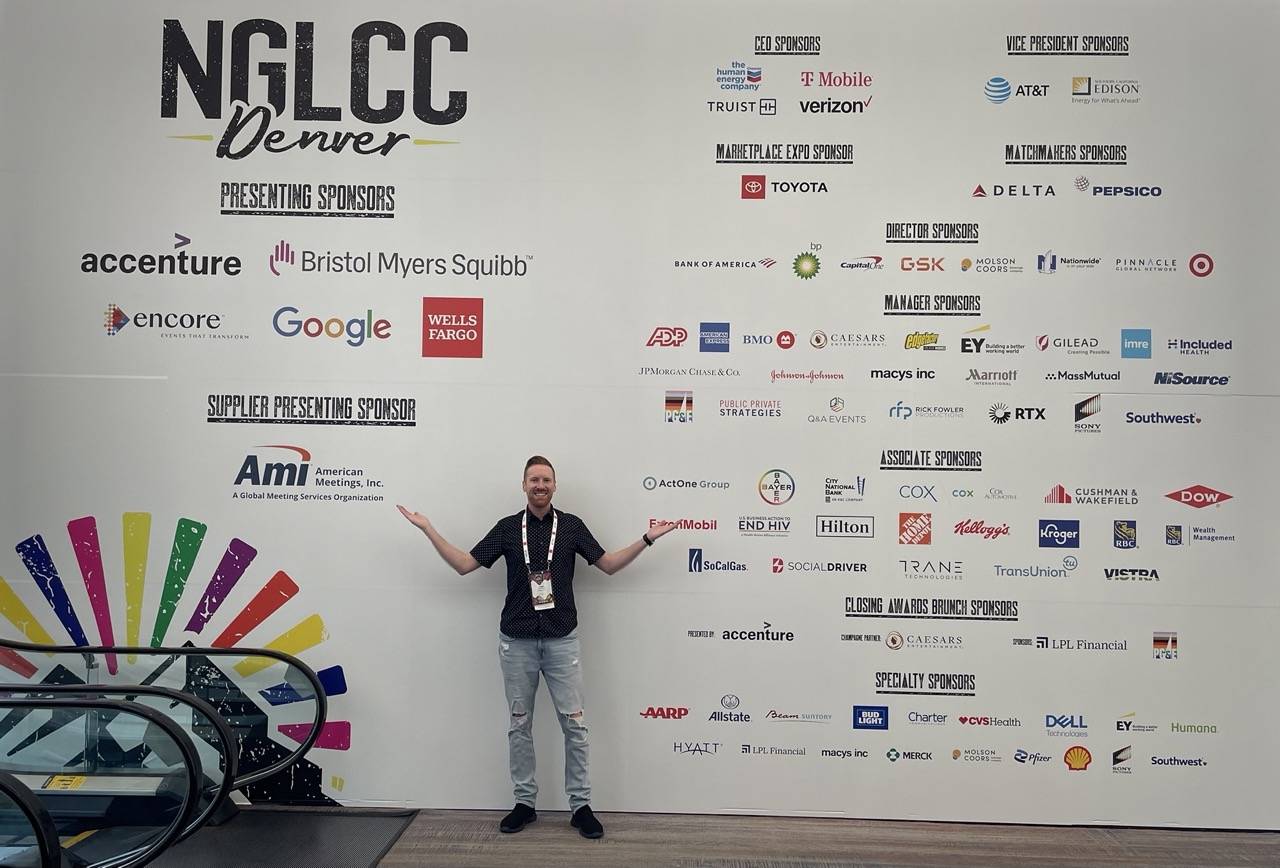Ethan Jong • Published April 29, 2024

Many Americans believe that the use of AI in the workplace will eliminate and replace a great deal of jobs in the U.S. over the coming years.
The fear of AI taking over human jobs has been a trend of recent. With more advanced AI tools being created every day, the future of the human workforce seems bleak at times. Artificial intelligence is smart, quick, efficient, and highly adaptive. And not to mention that AI can work without rest, unlike a human.
So what does the technology revolution entail for the future of employment? More specifically, how will the LGBTQ+ businesses’ job forecast play out? Will organizations see massive layoffs due to AI taking over? Or will AI actually act as a catalyst for new job opportunities within the labour market?
In this article, we will unpack some recent research and data on the technology of AI and how these advancements will prove to be either challenges or create new opportunities for workers in the LGBTQ+ community. As a bonus, you will receive an inside look into how the NGLCC (National Gay & Lesbian Chamber of Commerce) will combat some of the discussed hurdles that AI may produce for the LGBTQ+ community.
Key Takeaways
- Many Americans are skeptical about the future of employment as a result of the AI revolution.
- Artificial intelligence can create challenges for all people, especially the LGBTQ+ community.
- The NGLCC helps to combat some of these challenges by providing business opportunities through events and networking.
Why are many Americans skeptical about artificial intelligence in the workplace?

The idea of robots and computers taking over our jobs has been a longstanding concept, though today’s AI is a very recent development. In our everyday lives, we see these systems providing some sort of guidance or aid for better or for worse.
If you have ever visited a modern-day school campus, you cannot walk a mile without seeing a student typing away with Chat GPT on their computer. The use of such systems has become so rampant not only in the education system, but across every facet of the labour market that American workers are a part of.
The purpose of AI is to help make a higher quality of life by automating routine tasks, pursuing dangerous roles that would otherwise put human life in harm’s way, and helping humans to think outside of the box. But many fear that AI will become too good at these roles and that it will expand to replace other roles that were once dominated by humans.
According to a survey performed by Gallup, about 75% of Americans believe that AI will decrease the number of jobs over the next 10 years. For what reasons do Americans have to fear their job security, if any at all?
Job replacement and AI

A great example of how AI is already beginning to take over some jobs is a look at the trucking industry. The trucking industry sees truck drivers working long hours, often overnight without proper rest or break times. As a result, many truck drivers experience health consequences from staying up late and sitting down for long periods of time without much movement.
To solve this issue and cut down on labour costs, companies decided to tackle the issue by creating self-driving trucks. Many of these self-driving trucks are still being tested for safety and performance issues but could become mass-produced within the next decade.
So what happens to the truck drivers who once relied on the income generated from their trucking job? Are they left unemployed with no future job opportunities to come their way? After all, their skill set lies in trucking, but clearly, there may not be a demand for human drivers anymore with the advent of self-driving trucks.
AI surveillance systems and performance measuring

AI taking over jobs is not the only fear that workers have. More organizations are beginning to utilize AI systems to surveil their employees’ work and other at-work activities.
A commonplace for the use of AI surveillance systems is call centres. Employees at call centres are often monitored by an AI surveillance system that monitors all of the calls between the employees and the customer or potential customer.
These calls are often monitored from the second an employee picks up the phone to the second the employee places the phone back down. The constant monitoring of every word iterated by the employee can create emotional distress for employees who are uncomfortable with the concept of being constantly monitored.
Not to mention that the calls that are surveilled by the AI systems are also analyzed for performance measures. This means that employees at call centres may have their performance ratings, and ultimately their end-of-year bonuses, heavily influenced by an AI system.
LGBTQ+ businesses vs AI
Now that we understand a couple of the reasons why people may fear AI in the workplace let’s get more specific. Why do some marginalized groups, like the LGBTQ+ communities, fear AI?
There are several reasons as to why the LGBTQ+ community may fear AI. These reasons are likely due to the fact that AI has the potential to be harmful towards the LGBTQ+ community. Let us dive into how exactly AI can be harmful to queer individuals.
Bias in Decision Making: Sexual Orientation & Gender Identity
The number of companies relying on AI systems for their recruitment processes has increased dramatically. Organizations use these systems to scour through thousands of resumes, cover letters, and other applicant files in order to find the best-suited candidate or candidates to join the company.
The problem with relying solely on these systems to hire people is that human biases can easily work their way through to these algorithms. This is known as algorithmic bias, and algorithmic bias is certainly subject to both conscious bias and unconscious bias.
Nowadays, many organizations ask for the applicant’s sexual orientation and gender identity when completing the application process. Though this data is asked on an optional basis, some marginalized groups may not feel uncomfortable filling out this kind of information.
Some applicants with an LGBTQ+ identity may feel uncomfortable filling out such information during the application process for the reason that they may not even understand their true identity just yet. Or, they may feel the need to not fill out this information in the first place as they feel that doing so is completely unnecessary for the given demands of the job they are applying for.
Applicant data involving gender identity and sexual orientation is then sent to the AI systems for review. Applicants who did not answer the optional gender identity or sexual orientation questions may risk having their applications flagged by the system. In doing so, algorithmic fairness is not achieved and the applicants who chose not to answer the aforementioned questions on the application may now have a reduced likelihood of succeeding in the recruitment process.
Not to mention that biases can be incorporated into these systems through additional programming in order to flag and pass on applicants with an LGBTQ+ identity. What is important to note is that the use of these systems can go either way in either helping or damaging queer people and representation in the workplace.
Misgendering and Name Recognition by AI Systems

Some companies use automated systems for their employee directory and communication platforms. These systems have the ability to assign gender pronouns and titles to the employees without ever asking the employees for their preferred gender pronouns and titles.
An example would be an employee working at a company named Chris. Chris is a transgender person who was born male at birth and later transitioned to female. Chris goes by the pronoun she/her, and the title of Miss. Chris understands that her name is historically a male name, but decides to keep her birth name out of admiration for her name.
The automated system could read Chris’s name as being that of a male, as Chris is most commonly used for a male, and then wrongfully assign the pronoun he/him and the title Mister to Chris.
Chris has now been misgendered as a result of the automated system and must perform extra work to have her pronoun and title changed in the automated system. Chris having to perform additional work as a result of a system error that does not cater well to transgender people should not have to happen.
The importance of developing these automated systems with the correct algorithms is to ensure that misgendering and wrongfully assigning titles do not occur in the workplace. These are issues that should be solved, otherwise, there is no room for said automated systems in the workforce.
Censorship of Advocacy and Visibility

In 2020, renowned social media platform, TikTok, was under public fire for censoring LGBTQ+ content on their application. Videos that were deemed as being created or related to LGBTQ+ people were flagged as sensitive content or hindered from going viral in certain countries.
TikTok later issued a statement of apology over their censorship of LGBTQ+ people on their social media platform. But this story is simply an example of the type of censorship and suppression that is happening worldwide but is frequently missing from mainstream news.
Just recently in March 2024, trans model Laith Ashley was banned from TikTok Live over supposed ‘sexual activity’ when all he was doing was using the Live feature on the platform to speak to his followers, highlighting the disproportionate oppression LGBTQ+ people face on these social media platforms and that nothing has truly changed between 2020 and now.
In the workplace, employees who identify as LGBTQ+ people may face the same kind of censorship as set forth by TikTok.
Employees who stand in solidarity with LGBTQ+ people, and employees who openly identify as part of the LGBTQ+ community, may incur censorship and potentially harassment as a result of their advocacy and identity.
Some organizations use internal social media platforms to share work and personal achievements of their employees. These platforms can be heavily monitored by systems that will censor certain posts such as posts related to trans, queer, gay, or non-binary people. Even posts related to gender identity may be flagged as inappropriate by these monitoring systems.
As a result of this kind of censorship of advocacy and visibility of LGBTQ+ people, companies may produce a toxic work environment. One that does not promote inclusion of all walks of life in the workplace, and one that violates fundamental human rights of not only LGBTQ+ people, but of everyone using the platform.
The Future of LGBTQ+ Businesses
Despite the harsh realities of technology imposing limitations on LGBTQ+ people in the workforce, there is still much workaround that can be done.
To combat censorship and discrimination of LGBTQ+ people, LGBTQ+ people and allies must ensure that the systems being put into use at corporations are of good standard. Such systems that have the ability to censor LGBTQ+ advocacy and misgender trans people should not be approved or even considered for use.
Perhaps the best way to combat censorship and discrimination of LGBTQ+ people is to ensure that LGBTQ+ businesses continue to grow and remain successful. After all, if more LGBTQ+ people rise to power and wealth, then more LGBTQ+ communities can rest assured knowing that they will be in good hands.
In order to ensure that LGBTQ+ businesses continue to grow and prosper, LGBTQ+ businesses must stay ahead of the curve, especially in the midst of the technology revolution. Keeping up with the ever-changing demands of today’s fast-paced environment requires much effort and quick decisiveness.
How LGBTQ+ Businesses Can Keep Up with the Technology Revolution
Staying relevant in the technology revolution is all about finding the right opportunities on which to capitalize, staying informed about new developments, and constantly upskilling yourself. Together, we can learn to bypass AI bias, protect sensitive information from being leaked, and avoid discrimination on behalf of technology.
Learning the right skills and practices to remain relevant in an economy that is constantly changing will give you the opportunity to access and embark on new business ventures for expansion. Having the right knowledge about how to navigate through the ever-changing business economy will give you the support needed to make the change that you want to see in the world.
Some of the ways in which companies and business owners can take their efforts to the next level is through the following:
- Engage themselves in communities of like-minded people to catalyze growth and innovative idea-sharing.
- Obtain access to networking and workshop events to expand their business knowledge and learn to identify emerging opportunities in the market.
- Receive guidance on how to foster inclusion in the workplace to prevent a toxic workplace from developing.
By taking action with these simple steps, business owners can develop the necessary skills and connections to stay ahead of the curve. Fortunately, the NGLCC has LGBTQ+ business owners covered by providing access to a multitude of events that will help LGBTQ+ business owners learn how to navigate through the economic world.
Introducing the NGLCC and their events
The NGLCC hosts events year-round with the purpose of helping any LGBTQ+-owned company looking to develop its brand name and reputation. The NGLCC has been a huge advocate for LGBTQ+ people and continues to serve all facets of the LGBTQ+ community.
Regardless of sexual orientation and gender identity, the NGLCC is willing to help business owners as long as they identify as LGBTQ+.
NGLCC Events to Attend
The NGLCC hosts a variety of events on a year-round basis. From networking and sales pitching to conferences, the NGLCC is sure to have an event for you.
The following are all events hosted by the NGLCC. The point of these events is to help LGBTQ+ people navigate their way through the business world by providing the connections, decision-making help, and knowledge to do so.
Sip & Pitch

The NGLCC’s Sip & Pitch event occurs multiple times throughout the year. The event is hosted on the last Friday of every month from 3:30 PM to 5 PM over a Zoom call. As an attendee, you get to pitch your business ideas to a panel of experts and business owners.
After pitching your business, you will be engaged in a panel discussion that will involve constructive criticism and feedback that you can use to take your company to the next level.
After your 5-minute pitch and the feedback period has concluded, you will have the opportunity to network with other LGBTQ+ employers and business owners with the purpose of learning more about their businesses and lives.
Some of the benefits from pitching and networking at the NGLCC’s Sip & Pitch event are:
- The chance to meet and network with multiple business owners in the community.
- Free constructive feedback from trusted professionals to elevate your organization.
- A new opportunity to practice your “elevator pitch” in a safe environment.
- An insightful look into how other business professionals are operating their successful businesses or mistakes they made in the past.
In order to apply to the NGLCC’s Sip & Pitch event, please see this application form.
The NGLCC International Business & Leadership Conference

Every year, the NGLCC hosts the biggest LGBTQ+ business event in the world. Regardless of sexual orientation and gender identity, everyone is welcome to join as the NGLCC recognizes the importance of strong allies in the community.
This event features celebrity speakers, fireside chats, panel discussions, dancing, networking, and delicious food.
Some sponsors that have helped to make this event possible in past years include:
- Wells Fargo
- Sony Pictures
- ExxonMobil
To learn more about where this year’s event will take place and how you can attend, click here.
I attending the 2023 NGLCC conference in Denver, Colorado, and absolutely plan to attend every year from here on out. There is just such a different vibe in the room when you feel safe to be your true self in a room full of other business folks.
Webinar Wednesday
Every month, the NGLCC hosts a webinar designed to provide training, business development guidance, support for writing capability statements and RFPs, and much more.
To learn more about these webinars, click here.
Past and upcoming events
The NGLCC hosts and co-hosts many other events that can be found on the events calendar. Some of the events found on the events calendar are related to the NGLCC programs. Learn how the NGLCC programs are having a positive effect on American business outlook.
Summary
Algorithmic bias may always exist in the computer systems that dictate the lives of the world we live in. Technology will always produce some form of hindrance for people regardless of one’s sexual orientation and gender identity. Researchers will continue to use big data to push the envelope of what modern and future technology can and will achieve.
Whether you identify as transgender, non-binary, female, male, or any other identity, technology will affect the way in which you interact with the world and go about your digital life. Hopefully, for the better.
As more scientific researchers and advocates push for algorithmic fairness, the battle between LGBTQ+ businesses and AI is just warming up. We have seen how discrimination in the employment process on the account of human resources can occur. How certain media platforms and communication systems can have the ability to wrongfully gender and assign titles, creating room for discrimination and microaggressions.
But there is hope for the future of technology and the employment of LGBTQ+ people. Part of that hope is provided by the NGLCC and the work they are doing to support LGBTQ+ businesses. The NGLCC acts as a beacon of light to which LGBTQ+ people and allies can look for innovation, inclusion, and the eradication of workplace discrimination.
The NGLCC has the ability to provide the necessary business development tools to LGBTQ+ people and their companies to avoid the pitfalls and traps that current and future technologies may construct. There is no doubt that the LGBTQ+ business job forecast for employment will be robust with the help of the NGLCC in the face of this new AI technology revolution.
FAQs
In 2022, LGBTQ+ people made up about 7.1% of the US population. This figure is 1.5% higher than the reported statistic of LGBTQ+ people in the US in 2020. Keep in mind, this is only a rough estimate as data collection relies on self-identification and most in the LGBTQ+ community understand that the true number is higher than posted here.
LGBTQ+-inclusive work policies, according to research done by the U.S. Chamber of Commerce Foundation, show that employees who work in inclusive workplaces report higher levels of job satisfaction, productivity, mental and physical health, and satisfactory relationships regardless of gender.
The professional title for non-binary people is Mx. An example of using the professional title for a non-binary person: “Dear Mx. Smith, thank you so much for…”
LGBTQIA2S+stands for Two Spirit, Lesbian, Gay, Bisexual, Transgender, Queer/Questioning, Intersex, and Asexual.
The global LGBTQ+ industry is worth $3.7 trillion annually. LGBTQ+ people make up a relatively large portion of the global market with roughly 21% of all adult Gen Z Americans now identifying as LGBTQ+.
Current technology is unable to determine one’s gender with 100% certainty. A brain scan device developed by Sanford Medicine researchers can determine with over 90% accuracy the gender of a brain scan.

